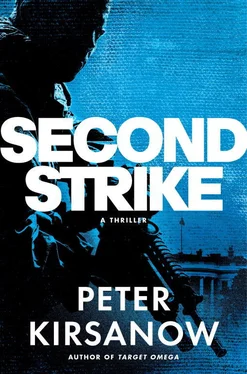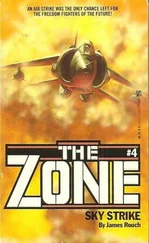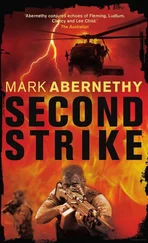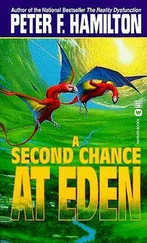Volkov felt as if he were in a vise. No one could guarantee one hundred percent success of the operation, and he didn’t want to be held responsible should it not achieve that goal. But he had just touted its imminent success. And, in truth, the preparations were one hundred percent complete. There was nothing left to be done. Colonel Egorshin had covered every contingency and the unit’s work was astonishingly good.
Stetchkin added, “Of course, I understand no one can guarantee with one hundred percent certainty that all aspects of the operation will conclude successfully. But am I correct that you believe it is one hundred percent ready to proceed?”
“Yes, all preparations are, indeed, complete and it is one hundred percent ready to proceed.”
“Good. Very good. It is that type of straightforwardness that is the hallmark of a leader ready to command.” Stetchkin smiled. “And you will certify such?”
“Absolutely.”
“Outstanding, Major Volkov. President Mikhailov will be pleased.” Stetchkin again walked to Volkov’s side, placing a hand on the major’s shoulder. “Your clarity is refreshing, a departure from the temerity and obfuscation I get from Egorshin. I do not mean to be overly critical of him. By your own account, he has done a good job. Clearly, the pressure of the impending event has taken a toll. But he seems unduly distracted. Tired. I’m not sure he is budgeting his time well. Is he, to your knowledge, preoccupied with something?”
“Not to my knowledge, sir.”
“Perhaps he is having financial problems; problems with a woman? I am told he has been seeing Tatiana Palinieva, the television hostess, for some time now. Has he expressed any problems with their relationship?”
“Not to me, sir.”
“Has he discussed her at all with you?”
“Our relationship is professional, sir. Colonel Egorshin does not discuss his social life with me.”
“Have you met Palinieva?”
“I have spoken to her a few times at official functions, sir.”
“And what are your observations regarding her?”
“She is very pleasant. She seems to be interested and even knowledgeable about a range of matters—from politics to science to sports.”
“Did you discern any dissatisfaction with her personal affairs? Any signs of frustration, discontent?”
“No, sir, I did not.”
Stetchkin nodded and walked behind his desk again. “You have been very helpful, once again, Major. You have a bright future. You are dismissed.”
Volkov rose and walked out of Stetchkin’s office more than relieved. He was almost ebullient.
NORTHERN VIRGINIA,
AUGUST 17, 9:30 A.M. EDT
H e knew the signs of frostbite and he was fairly certain two toes on his left foot were gone; the rims of his ears too. He needed treatment before gangrene set in.
Lieutenant Nikolai Garin had been walking—sometimes jogging—almost nonstop in the sixty hours since he’d overpowered the guard and slipped under the barbed wire of the detention camp located in the Soviet sector of postwar Germany. The NKVD had identified him as an apostate, a nonbeliever in the communist state. As such, he was destined for death or a labor camp, but only after brutal interrogation by the sledovatels who had dismembered or otherwise disfigured most of his cellmates.
He hadn’t eaten in nearly three days. He was lightheaded and concerned that after walking through near-whiteout conditions for long stretches he was disoriented and might be headed back to the Soviet sector. He had no guideposts or landmarks for direction. But he’d already evaded two patrols. Since the patrols likely would become more frequent the closer he got to the American sector, he surmised he was headed in the right direction.
This was the critical time. The next few hours would determine whether he would live free or die. Because no matter what, he wasn’t going back. Nikolai Garin’s children and grandchildren would never be told what to think or what to say. His progeny would grow up in America. Hobbled, starving, exhausted, and frostbitten, Garin was prepared to kill anyone who stood in his way.
As would his grandson.
—
The very first thing Garin registered was that he was restrained. Something was restricting his movement. But he couldn’t identify it, couldn’t even see it. He didn’t even know if it was real.
His mind was floating in a zone somewhere between consciousness and unconsciousness. His senses were scrambled. He heard sounds, but they were muffled and unintelligible. He saw lights and shades, but they were formless and ethereal. He smelled air that was cool and damp with an odor of cardboard and mildew. The taste in his mouth was acidic and artificial.
His head hurt. It was not the pain of an external blow but of internal discomfort. And he was mildly nauseous.
He tried to focus, to discern something from the lights and shadows. But everything before him appeared as if he were looking up from the bottom of a swimming pool in late evening—vague, distorted, and shifting.
For a moment he thought he heard a voice. It was slow, deep, and ponderous. But he wasn’t sure. Maybe he was imagining it.
He was somewhat certain, however, that the restraints were real. Something was tight on his wrists, tight enough to cause discomfort, if not pain. But then, he couldn’t even be sure of that, because when he tried to move his arms his muscles failed to respond. Same with his legs. His brain was giving orders but the electrical impulses never made it to his extremities. Maybe he wasn’t restrained, after all. Maybe he was paralyzed.
Strangely, the thought of paralysis generated no emotion. Not fear, not anxiety, not even depression or sadness. It was as if he was completely detached from his body, viewing it from a different plane, examining it like a test tube specimen.
He had no concept of time. The random thoughts traversing his brain might be occupying seconds, minutes, or hours. His brain attempted to analyze the situation, but it did so without any urgency, which confused him. He knew his present state was abnormal—perhaps even dangerous—yet his brain was in no rush to provide answers or solutions.
Some part of him, something far above the medulla, tried to get the rest of him to concentrate, to at least focus his eyes, penetrate the fog of blurry lights and undulating shadows. The more he did so, the more his head hurt and the nausea increased.
Then there was a loud crack. It sounded like a heavy object striking stone or concrete. The noise brought a fleeting moment of clarity, but within a short time—he couldn’t gauge how long—he began to recede back into a mist.
Another sound. This one not as loud but more identifiable. It was the sound of a chair scraping across the floor. The floor was stone or concrete. He saw movement or, more precisely, a shadow shifting laterally. But once again, he began to recede into a mist.
He sensed a subtle change in air pressure. It seemed to have accompanied the shifting shadow. Then he heard a voice; at least he thought it was a voice. No, he was certain it was a voice.
There was more shifting of shadows, which yielded to larger expanses of light. The shadows were assuming shapes, though the shapes were fluid and indistinct.
He felt a twitch. His right quadriceps had moved involuntarily; he wasn’t paralyzed after all. He tried to move his legs but there was no response. He tried to move his arms. Still no response.
The fog before him was lifting a bit more and the nausea was gone. But his head hurt worse and now he was feeling pain in his hands and around his neck. He must’ve struck something hard with his fists. He was beginning to sense the passage of time more accurately. He was gradually becoming more self-aware.
Читать дальше












